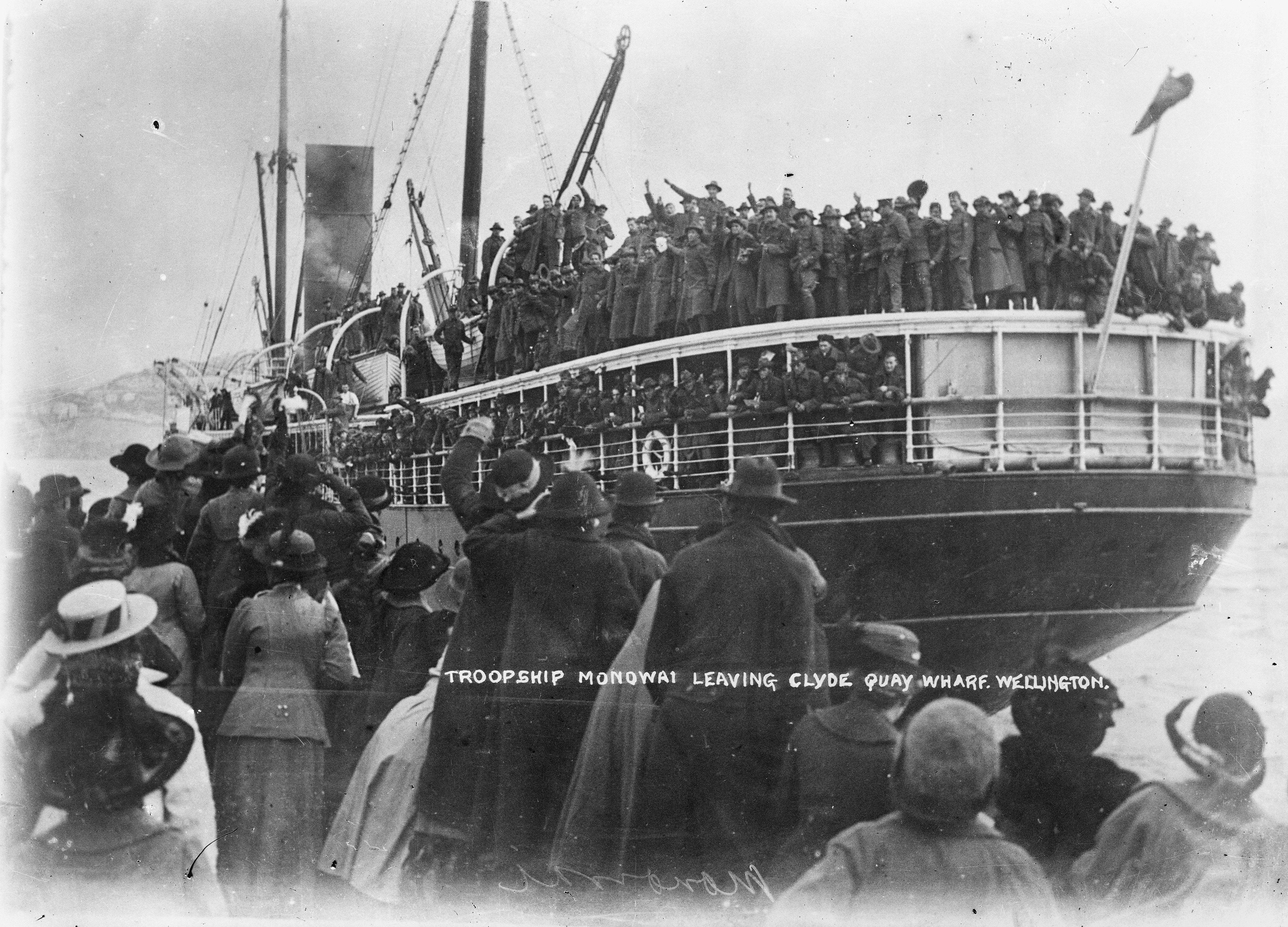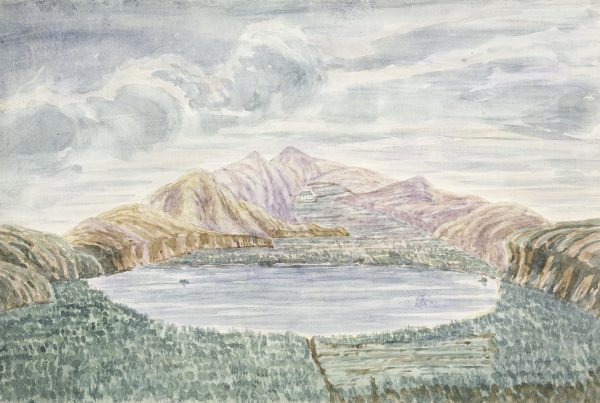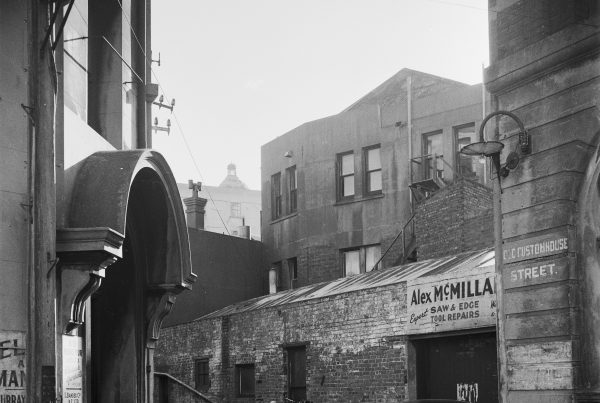![[Caption:] Troopship Monowai leaving Clyde Quay Wharf, 16 August 1914, 1/2-015217-G, John Dickie Collection, Alexander Turnbull Library](https://danslevin.com/fishhead/wp-content/uploads/2015/05/015217-copy-1024x737.jpg)
This photograph shows the departure of the ‘advance guard’ less than two weeks later. They were headed for Samoa, then a German colony, although the destination was still a secret. The British had requested the capture of the wireless station at Apia, and New Zealand was keen to strike one of the first blows against the enemy.
A lot had to be organised very quickly, and after four frenetic days the Advance Force was ready. The following morning, 12 August, headed by their military band, they left the barracks and marched off down Cuba Street, cheered all the way, to the troopships waiting at Kings Wharf. There, to quote the official war history, “About 7pm… the transports moved from the wharf. This was the signal for what was believed to be the final farewell… It found expression in loud cheering and singing, hakas, and merry raillery, while a diversion was caused by a private falling overboard and being rescued.”
But it was not quite the final departure. The Admiralty orders had not arrived, so they had to drop anchor off Matiu/Somes Island, and they were still there all the next day. The day after that, they came ashore again at Clyde Quay Wharf and marched up to the Basin Reserve for another round of patriotic speeches. Very early the following morning, on a cold grey southerly day, they finally departed. This photograph was taken then.
There were other delays before the troopship reached Apia. Because of the threat of the German Pacific fleet they needed naval protection, which was not immediately available. That meant a detour to New Caledonia, then Suva, before they finally steamed into Apia Harbour on 29 August. The Germans surrendered without a shot being fired.
Meanwhile, back in New Zealand, excitement continued as the main Expeditionary Force prepared to sail for Europe. The first troopships left in mid-October, and were soon diverted to Egypt when the Ottoman Empire entered the war. Over the next four years, 100,000 New Zealanders fought overseas; 18,500 never returned. It was not to be the glorious adventure many had expected.




